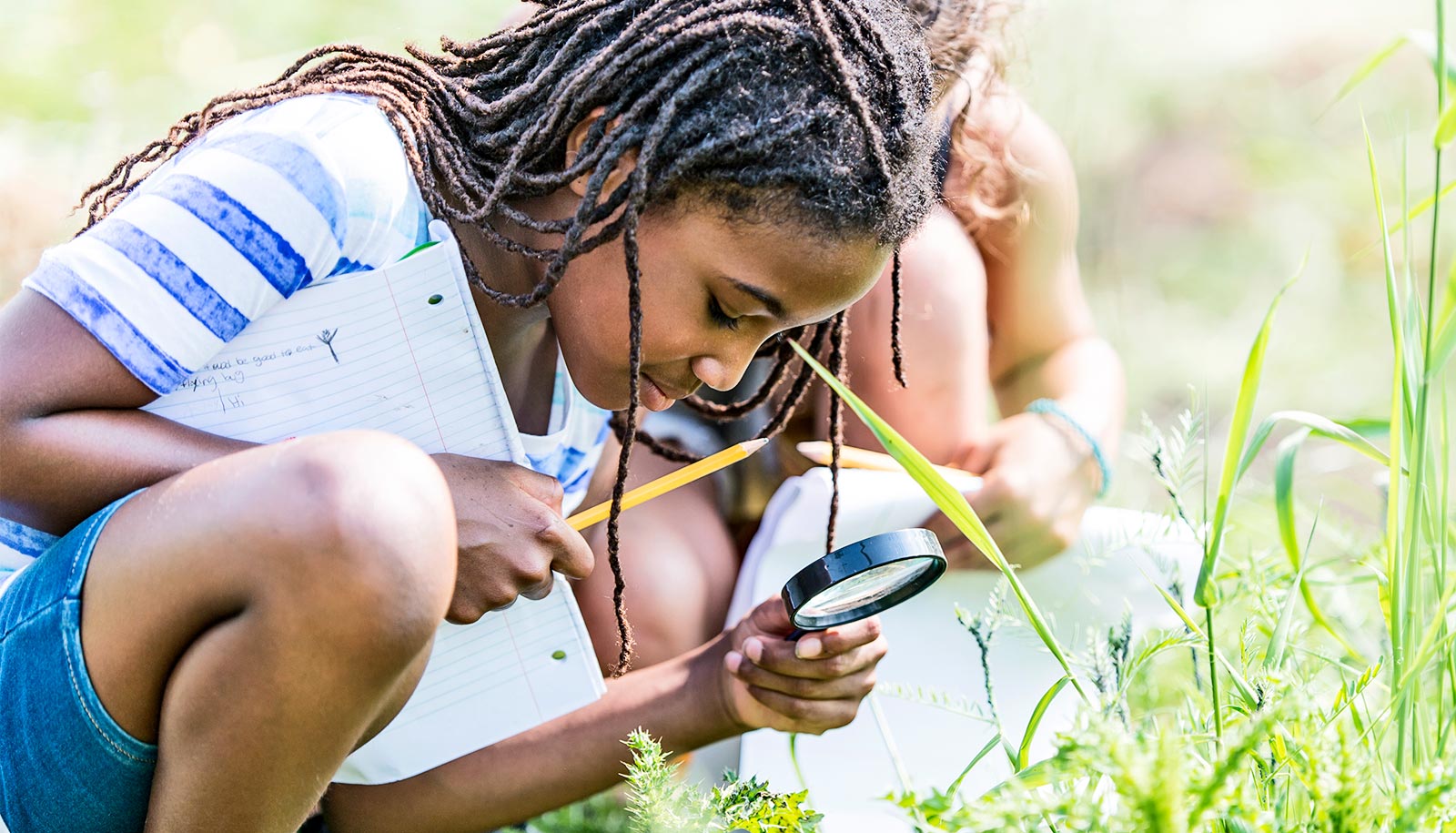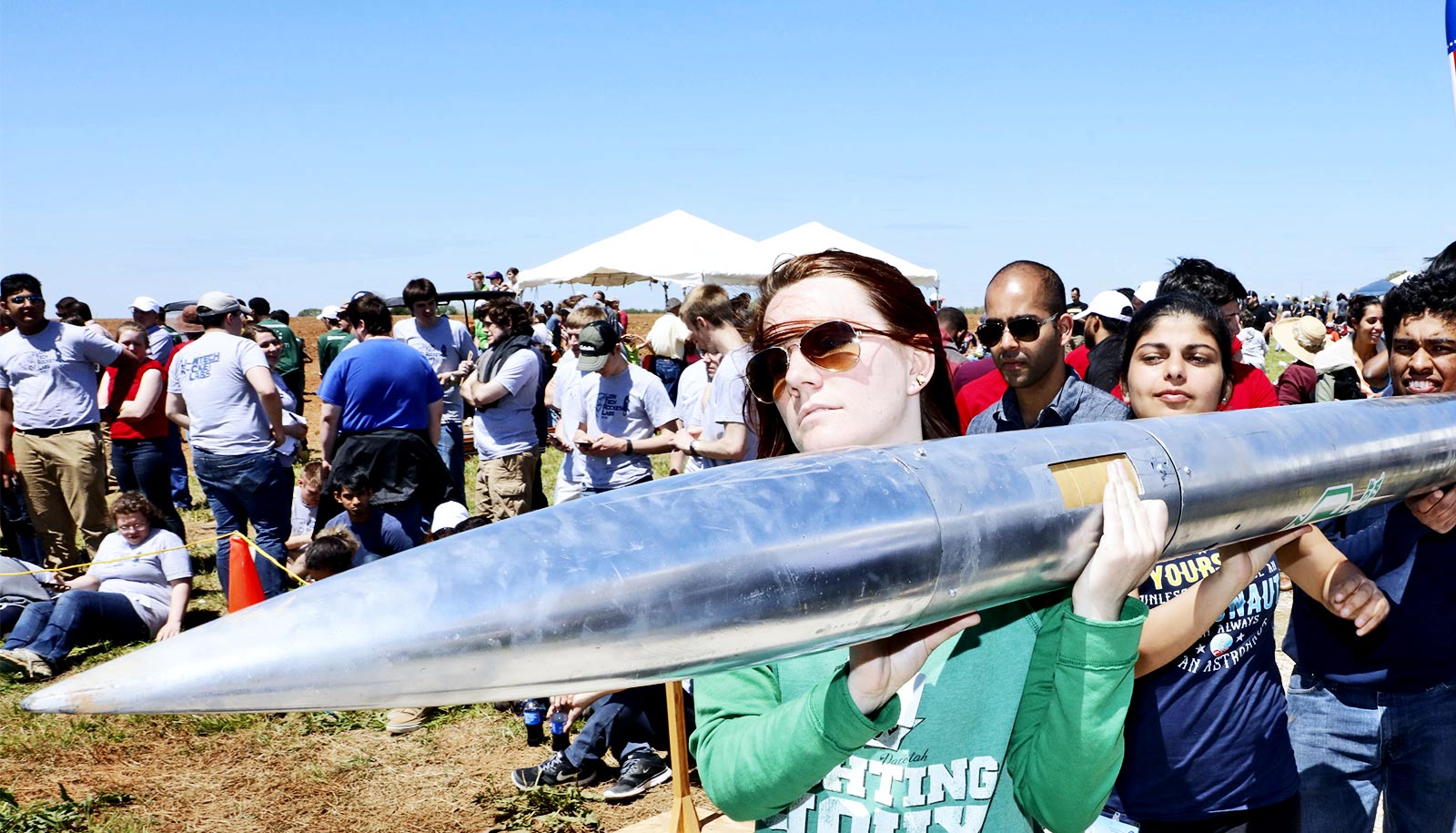
"We've found that after participating in citizen science, students do not just learn more science content or the process of science, or have better attitudes or trust in science," says Caren Cooper. "It can be the basis for motivating action." (Credit: Getty Images )
Citizen science motivates Girl Scouts to tackle problems
After taking part in citizen science programs, Girl Scouts were motivated to tackle science or environment problems in their own communities.
A program designed to get Girl Scouts involved in citizen science motivated them to tackle scientific or environmental problems in their own communities, researchers report.
The findings demonstrate the impacts projects involving citizen science—programs where members of the public can participate in real scientific research—can have on their participants and offer lessons for other organizations on how to structure STEM-focused learning opportunities using citizen science.
“We’ve found that after participating in citizen science, students do not just learn more science content or the process of science, or have better attitudes or trust in science,” says study coauthor Caren Cooper, professor of public science at North Carolina State University. “It can be the basis for motivating action .”
The study evaluated the impact of a partnership between the Girl Scouts of the USA and SciStarter.org , an online hub for citizen science projects. Between 2017 and early 2020, more than 200 Girl Scout troops with girls between the ages of 4 and 11 participated in a program called “Think Like a Citizen Scientist.”
First, the Girl Scouts learned about making observations or predictions, collecting data, and doing data analysis. Then, they signed up to participate in a citizen science project through SciStarter. The most popular project was one led by applied ecology researchers at NC State called “Ant Picnic,” where volunteers created a picnic for ants, waited an hour, and recorded the number of ants that showed up.
“These citizen science projects were chosen by Girl Scouts and SciStarter to be age-appropriate, and were part of a multi-stage curriculum, or ‘journey,’ designed to introduce girls to citizen science,” says lead author Haley Smith, a PhD candidate in NC State’s Fisheries, Wildlife, and Conservation Biology program.
“The Girl Scouts’ program design is a really great model, where learning activities are structured to build off of each other. Girls gain more independence as they go along. That’s something other organizations could use to set up participants in citizen science projects for success.”
After participating in the citizen science projects, the Girl Scouts completed “Take Action Projects” in their communities. These projects included activities such as installing recycling bins; educating family members about water pollution; creating gardens at a YMCA to attract native insects; raising money to buy science books for the local library; and even sewing sleeping bags for a hedgehog at a nature center.
Most girls (81%) chose projects addressing science or environmental topics, and many of the projects (66%) were designed to educate or inspire others.
“In the overwhelming majority of cases, we saw girls taking what they had done with citizen science and extending that in some way, such as by supporting science literacy , promoting environmental goals like recycling, or providing habitat,” Smith says.
Girl Scout troop leaders reported in surveys that girls who completed the program learned about science and environmental topics and about the process of science, developed confidence in STEM, and received other benefits. Most importantly, they learned to identify and address problems in their communities.
“Because of this research, we now have empirical qualitative data that reinforces the crucial role of organizations like the Girl Scouts in facilitating participation in citizen science, and therefore in expanding awareness of, access to, and engagement in, science and related local actions,” says Darlene Cavalier, coauthor and founder of SciStarter.
The study appears in the journal Environmental Education Research .
The National Science Foundation supported the work.
Source: NC State
The post Citizen science motivates Girl Scouts to tackle problems appeared first on Futurity .
Share this article:
This article uses material from the Futurity article, and is licenced under a CC BY-SA 4.0 International License. Images, videos and audio are available under their respective licenses.
Related Articles:
Better grades aren’t why more guys do STEM
June 23, 2020 • futurityInclusive STEM classes help teens see they belong
March 4, 2022 • futurityLinks/images:
- https://www.futurity.org/do-science-confidence-children-2060362/
- https://scistarter.org/
- https://www.futurity.org/girls-outside-science-education-2546772/
- https://www.futurity.org/misjudged-kids-ability-learn-science/
- https://doi.org/10.1080/13504622.2023.2237705
- https://news.ncsu.edu/2023/07/citizen-science-inspires-kids-to-take-local-action/
- https://www.futurity.org/girl-scouts-citizen-science-stem-2951172/
- https://www.futurity.org


